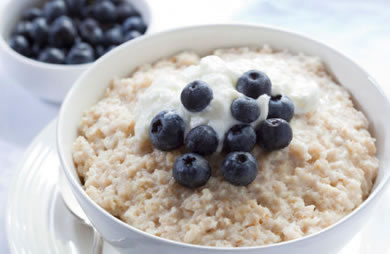|
"Weight loss is really hard---but maintaining that weight loss is even harder!" If anyone out there agrees with this statement; please raise your hand. That’s what I thought. There are lots of hands held high. It seems that most people struggle with the yo-yo syndrome: lose the weight, gain the weight, lose the weight, gain the weight. But, what’s a dieter to do? Perhaps it is time to put the cart before the horse. Researchers at Stanford University School of Medicine recently conducted a "switcharoo" when it came to weight loss and weight maintenance. They took 267 overweight and obese females and divided them into two groups. The control group went through a traditional 20-week weight-loss program followed by an eight-week maintenance phase. The test group went through the eight-week maintenance phase first, and then focused on weight loss for 20 weeks. The results were surprising to say the least, and significant. While each group lost about the same amount of weight--17 pounds or 9% of their initial body weight--the "maintenance-first" group only gained back three pounds at their one-year follow-up but the "weight loss first" group had gained back seven pounds, on average. Sounds crazy, doesn’t it! But guess what? Those women who first spent eight weeks mastering the tools, techniques and skills for weight maintenance were better equipped mentally and physically to handle the day-in, day-out struggle of their toxic food environment after the 28-week program was completed. Are you itching to discover how?
Weight loss requires constant attention to detail 24/7. There is weighing, measuring, food tracking, meal planning, grocery shopping, and finding time to fit in fitness. Every minute of every day seems to be about weight loss. It can be exhausting. However, during maintenance, you want to "stay on your plan" but without the overwhelming amount of work 24/7. And that is exactly what these first eight weeks of maintenance-first allowed these women to discover. Once these skills and strategies were incorporated and a part of their daily life, maintaining the weight loss following the program was much easier to accomplish and resulted in greater success. Of course these researchers want to take this preliminary study to the next level. They want to test a larger group with greater diversity and follow their progress for longer than one year out. Anyone ready to volunteer? Would you be willing to begin your weight loss adventure with weight maintenance first? |
Related Entries
More From SparkPeople
|

.jpg)




















